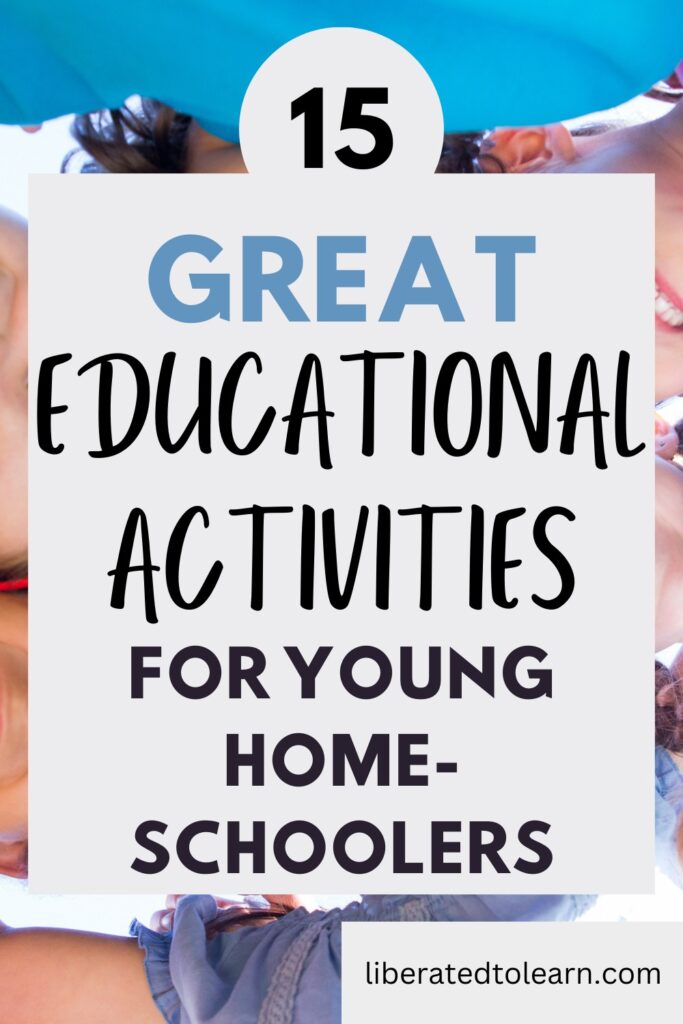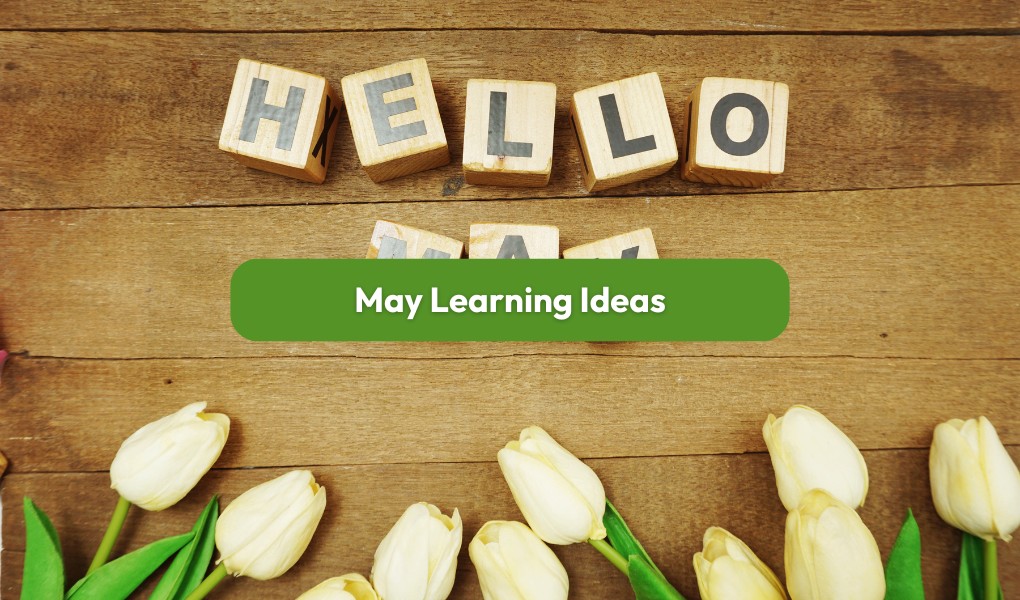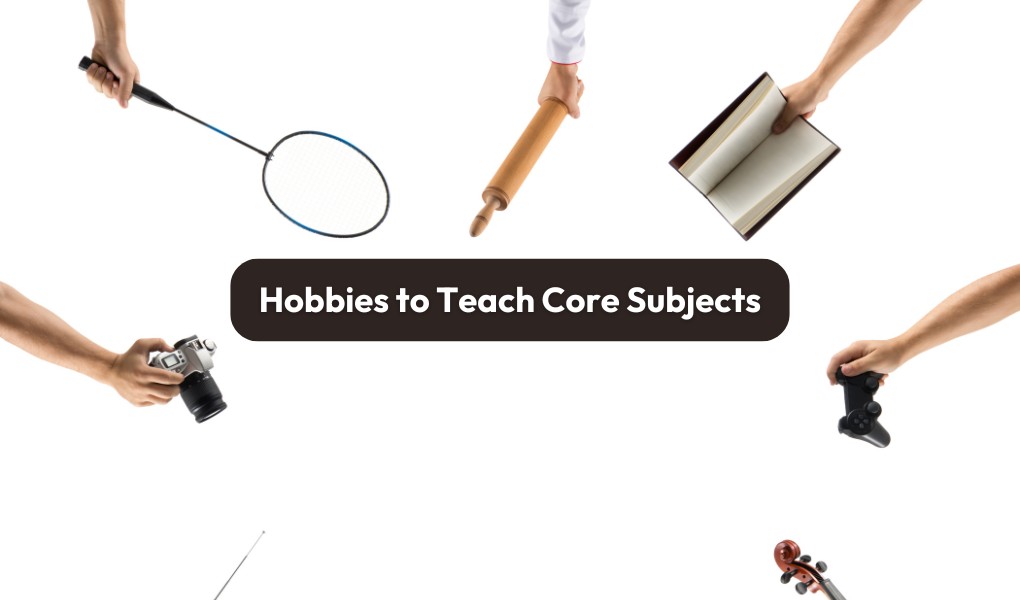As home educators we’re always looking for the best educational activities for our children. So what exactly should we be looking for and expecting from an educational activity?

As home educators we’re always looking for the best educational activities for our children. So what exactly should we be looking for and expecting from an educational activity? Well, we think the best kinds of activities are engaging, easily tailored to different interests and also encourage a love for learning. Really, your children should feel like they’re having way too much fun for it to be considered learning, even though it is!
We’ve compiled a list of some of the best learning activities for young homeschoolers so that you can pick and choose, depending on your child’s needs, strengths and interests.

1. Nature Walks and Outdoor Exploration
Why It’s Great:
Nature walks may seem like a simple activity. In fact, it might be something that you do every day, but outdoor exploration is not only good for physical activity; it provides the perfect opportunity for young homeschoolers to make discoveries and learn.
And you don’t even have to go far to take advantage of outdoor experiences — simply exploring in your back garden can give your child the chance to observe different plants, animals, insects and weather patterns. And all of this discovery can lead to discussions and spark your child’s curiosity about biology, ecology, and environmental science.
Activity Ideas:
- Scavenger hunts: Create a list of items for your child to find, such as different types of leaves, rocks, or insects. This sharpens observation skills and encourages attention to detail.
- Nature journals: After your walk, have your child draw or write about what they saw. This reinforces memory and encourages artistic expression.
- Scrapbooks: Allow your child to collect different leaves, flowers and materials that they find outdoors and put them into a scrapbook. They can then research what they have discovered and write about it.
- Seasonal studies: Observe how the environment changes with the seasons and discuss why these changes happen. This introduces basic concepts of Earth science.
2. Hands-On Science Experiments
Why It’s Great:
Science experiments captivate young minds with hands-on learning. When children see something in action, it’s a lot easier (and not to mention fun) for them to understand and grasp different concepts.
Activity Ideas:
- Baking soda and vinegar volcano: A classic experiment that teaches chemical reactions in a fun and visual way.
- Growing crystals: Show how minerals form by growing crystals from a simple salt or sugar solution.
- Planting seeds: Teach children about plant life cycles by planting seeds and observing their growth over time.
- Check out some other great science experiments!
3. Gardening and Composting
Why It’s Great:
Gardening introduces children to biology, ecology, and sustainability. It’s easy to do but also teaches patience and responsibility as they care for plants over time.
Activity Ideas:
- Start a garden: Let your child choose what to plant, and involve them in every step from planting seeds to harvesting.
- Composting: Teach them about waste reduction and decomposition by creating a compost bin. Explain how compost enriches the soil and helps plants grow.
- Garden journal: Keep a journal to track plant growth, weather conditions, and observations, integrating science and writing.
4. Music and Rhythm Activities
Why It’s Great:
Music is not only great for the soul and feeling good; it enhances brain development, especially in areas related to language, reasoning, and emotion, and encourages creativity and self-expression. And at any age, music is also a great source of inspiration and motivation.
Activity Ideas:
- Learn an instrument: Introduce your child to a simple instrument like a keyboard, recorder, or ukulele, which teaches the art of practice.
- Rhythm games: Use household items as instruments to explore rhythm patterns. Clap along to a beat or create your own simple songs.
- Sing-alongs: Singing familiar songs together can improve language skills and memory.
5. Physical Education and Movement
Why It’s Great:
We all know physical activity is essential for overall health and well-being, but it also helps to improve focus and energy levels, which makes learning much easier and enjoyable.
Activity Ideas:
- Yoga for kids: Introduce yoga poses and breathing exercises to promote flexibility, balance, and relaxation.
- Dance parties: Turn on some music and let your child dance freely. This can be a fun way to burn off energy and explore rhythm and movement.
- Obstacle courses: Create an indoor or outdoor obstacle course to challenge your child’s agility, coordination, and problem-solving skills.
6. Cultural and Historical Studies
Why It’s Great:
Exploring different cultures and history broadens children’s understanding of the world. It also helps them develop empathy and global awareness.
Activity Ideas:
- Cultural celebrations: Celebrate holidays or festivals from around the world, including traditional foods, music, and crafts.
- History projects: Choose a historical figure or event to research, then create a presentation or model to showcase what you’ve learned.
- Virtual tours: Explore famous landmarks, museums, or historical sites online, discussing their significance and what life was like during that time.
7. Storytelling and Reading Aloud
Why It’s Great:
As well as developing a love for books, which is great in itself, reading aloud and storytelling develops language skills, listening abilities, and sparks imagination and creativity.
Activity Ideas:
- Interactive storytime: Pause during reading to ask questions about the story, predict what might happen next, or discuss characters’ feelings and actions.
- Puppet shows: Create simple puppets to act out stories. This can make narratives more engaging and memorable.
- Create your own storybook: Have your child create their own story, complete with illustrations. This reinforces narrative structure and encourages writing skills.
8. Interactive Online Resources
Why It’s Great:
We might dislike technology at times, but it provides a wealth of resources that can complement homeschooling. Many online platforms offer educational games, videos, and activities that are both fun and informative for young homeschoolers.
Activity Ideas:
- Educational websites: Sites like Khan Academy, Starfall, and ABCmouse offer free or affordable educational games and lessons tailored to young learners.
- Virtual field trips: Explore various exciting places through virtual tours.
- Interactive apps: Use apps that focus on phonics, maths, science, or social studies to reinforce what your child is learning.
9. Cooking and Baking Together
Why It’s Great:
Cooking and baking are practical educational activities that incorporate maths, science, and reading. They’re also a great life skill to learn and encourage children to be more independent.
Activity Ideas:
- Recipe reading: Have your child read the recipe aloud and follow the steps in order, which helps with reading comprehension and sequencing.
- Practise maths in the kitchen: Use measuring cups and spoons to teach fractions, or double a recipe to practise multiplication.
- Science of cooking: Explain the science behind cooking, such as how yeast makes bread rise or how eggs help bind ingredients together.
10. Creative Arts and Crafts
Why It’s Great:
Art projects foster creativity and fine motor skills. Children are free to express themselves and draw on inspiration from other sources as well as their own imagination. They also provide a break from more structured learning while still being educational.
Activity Ideas:
- Painting and drawing: Encourage your child to express themselves by painting or drawing scenes from stories you’ve read together, or from their imagination.
- Collage making: Use recycled materials to create collages. This can be tied to themes like seasons, animals, or family.
- DIY musical instruments: Create simple instruments like shakers or drums, then explore rhythm and music.
11. Board Games and Puzzles
Why It’s Great:
Board games and puzzles aren’t just a bit of fun; they’re excellent for developing critical thinking, problem-solving, and social skills. Many games also reinforce maths, reading, and strategic thinking.
Activity Ideas:
- Maths games: Play games like “Monopoly” for money management, “Yahtzee” for maths operations, or “Sum Swamp” for addition and subtraction.
- Word games: Games like “Scrabble,” “Bananagrams,” or “Boggle” enhance spelling, vocabulary, and word recognition.
- Strategy games: Games like “Chess,” “Checkers,” or “Connect Four” build logical thinking and planning skills.
12. Drama and Role-Playing
Why It’s Great:
Drama and role-playing encourage creativity, public speaking, and emotional expression. These activities can also help children understand different perspectives.
Activity Ideas:
- Acting out stories: After reading a book, have your child act out the scenes, taking on different characters’ roles.
- Puppet shows: Create puppets and put on a show, which helps with storytelling, dialogue, and understanding narrative structure.
- Dress-up play: Use costumes to role-play different professions or historical figures, sparking discussions about those roles or times in history.
13. Educational Days Out
Why It’s Great:
Days out offer real-world experiences that bring formal learning to life. Visiting museums, zoos, farms, or historical sites are all exciting and make learning more understandable and interactive.
Activity Ideas:
- Science centres and museums: Explore interactive exhibits that cover a range of topics, from dinosaurs to space exploration.
- Zoos and aquariums: Learn about different animal species, habitats, and conservation efforts.
- Local businesses: Visit places like bakeries, factories, or farms to see how things are made or grown, connecting economic concepts to real-life applications.
14. STEM Challenges
Why It’s Great:
STEM (Science, Technology, Engineering, Maths) challenges are great for developing problem-solving skills and creativity. They encourage children to think critically and work through complex tasks.
Activity Ideas:
- Building challenges: Use materials like LEGO bricks, cardboard, or household items to build a specific structure, such as a bridge or tower. Discuss concepts like stability and design.
- Coding for kids: Introduce basic coding through apps or online platforms designed for children, such as Scratch or Code.org.
- Simple machines: Explore how simple machines (like pulleys, levers, and gears) work by building your own with household items.
15. Sensory Play
Why It’s Great:
Sensory play can be fun for children of all ages (and even adults too!) It engages children’s senses and supports cognitive development. It’s particularly beneficial for young learners as it helps them explore textures, sounds, and physical properties.
Activity Ideas:
- Playdough or clay: Encourage creativity and fine motor skills by moulding shapes, letters, or objects.
- Sensory bins: Fill a bin with rice, beans, sand, or water and add toys or objects for your child to explore. This can be themed to different lessons, such as a “beach” bin or a “farm” bin.
- Water play: Experiment with objects that sink or float, exploring concepts of density and buoyancy.

That’s a wrap for some of the best educational activities for young homeschoolers! Let us know which one is your child’s favourite!
m@liberated
Want more from Liberated to Learn?
Subscribe to stay updated about new posts, resources and giveaways!












